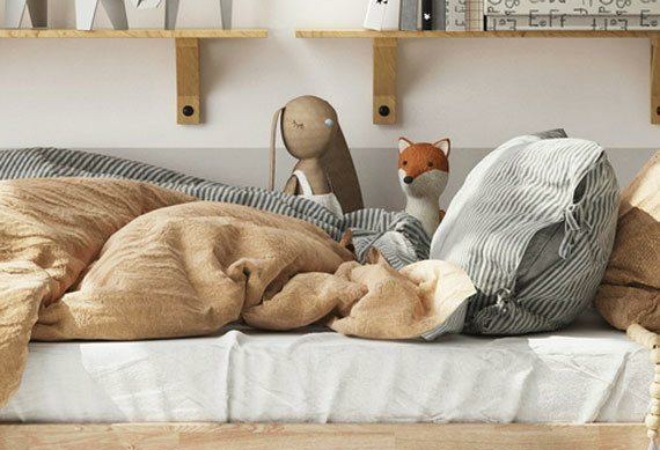A good night’s sleep is so important, but our kids don’t always share the same opinion! It can often feel like the teenage years, when kids embrace the idea of sleeping until noon, is a long way off! But until then, there are many ways that you can encourage your kids to get a good night’s sleep.
We spoke to Annette Faamausili, child sleep expert and founder of Serene Sleep, to provide her top tips on how to help children to get a good night’s sleep. Here are Annette’s top tips:
1.
SET A BEDTIME ROUTINE
SLEEP CUES
Bedtime routines involve a series of sleep cues that tell your body that it is almost time to sleep. We are creatures of habit, so without sleep cues, both children and adults find it hard to fall asleep. For example, many people find a cup of tea before bed sets them for a restful sleep. If we crave a subconscious bedtime routine as an adult, then it shows why it is even more essential for your children to follow one too. Taking your child through a regular bedtime routine and giving them a set of sleep cues each night, will help regulate their body clock and form the habits needed for a good night’s sleep.
IT’S ALL IN THE TIMING
Timing is a fundamental factor in getting the bedtime routine right. Make sure you don’t start too early, as they may lose focus partway through. Your routine should last no longer than 45 minutes, with 30 minutes being optimal. Try to contain the routine to the bathroom and the bedroom, because if they go back into the living space, it may break the sleepy spell.
WHAT TO INCLUDE
The bath, story and cuddle routine can work well before bedtime. Even children as young as six months old can enjoy looking at a picture book before bed. But, make sure you have set parameters for your older children so that you don’t fall into the trap of reading stories to them all night long. Once your little ones are under the covers, give them a hug and a kiss and try to leave the room when they are still awake. This removes the expectation that you will always be there when they fall asleep.
2.
CHOOSE A COMFORTABLE BED
An integral part of the sleep set up is the bed you choose. If your child is not comfortable in their bed, then they are going to struggle to get the restorative sleep they need. Make sure to choose a supportive, comfortable bed that is appropriate for your child’s age. Your child’s first bed is likely to be a cot. You should aim to transition them out of the cot before they are three. Make the transition when they are too big to fit in the cot, when they can climb out, or when they are toilet trained and fully dry at night. Once they move out of a cot, they will then transition into a bed. To prevent your child from rolling out of bed, you can install a bed rail or tuck a pool noodle under the sheets along the edge of the bed.

3.
CREATE A SAFE HAVEN
Creating the right sleep environment will help your child feel settled and secure in a familiar space. The room should be a safe haven for them to rest in. Keep the room well ventilated and as dark as possible. Use a black out blind to help keep out unwanted sunlight, and don’t use a nightlight unless your child is more comfortable with one. The ideal room temperature is around 19°C, so don’t heat the room too much during winter. Sleeping in thin layers is best to prevent your child getting too hot during the night.
4.
AVOID STIMULATION
If your child is overly stimulated before bed, then they will struggle to settle when it’s time to go to sleep. To prevent this from happening, there are two main things to avoid.
SCREEN TIME
Research has found that exposure to screens right before bed can cause your child’s brain to get ‘amped up’, preventing them from being able to wind down. Also, the flickering glare of a device’s screen can disrupt the natural production of melatonin – the sleep hormone.
EXERCISE
Exercise is often thought as an activity that will tire your kids out, so they are ready to go to sleep. It can work, but the optimal time to get them active is 2-3 hours before bed. This allows their body plenty of time to return to its normal temperature before rest.
5.
SEEK EXPERT ADVICE
If you have tried a few of the approaches described here and your family is still struggling with sleep, then you should seek the advice of an expert sleep consultant. A sleep consultant will be able to provide gentle and supportive solutions that will suit your household and style of parenting.
Find the perfect bed for your child
Simply try our Bed Selector tool to find the best bed for your child.




